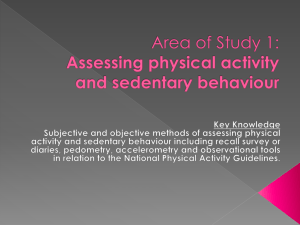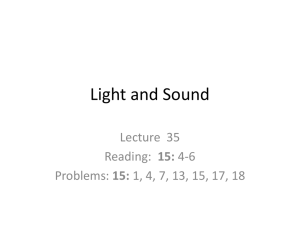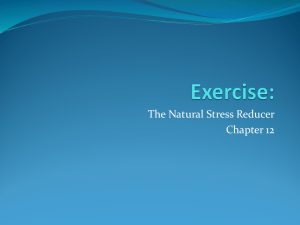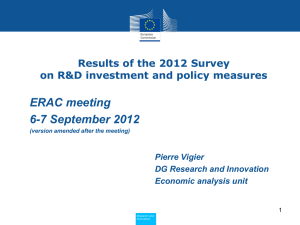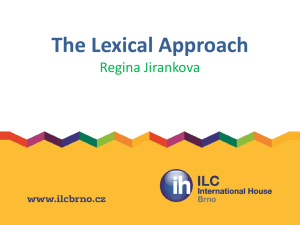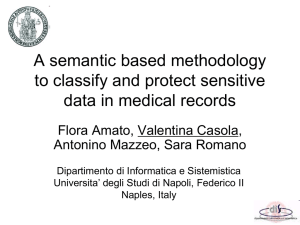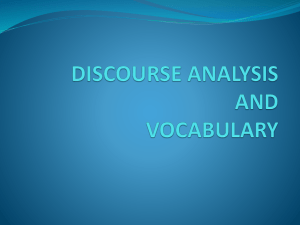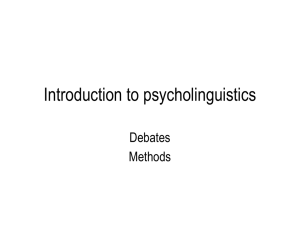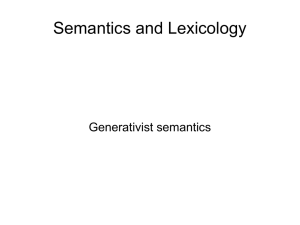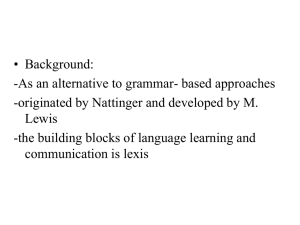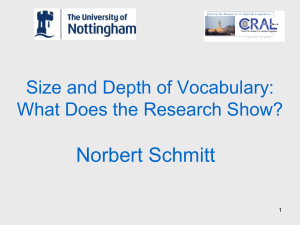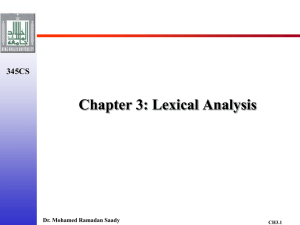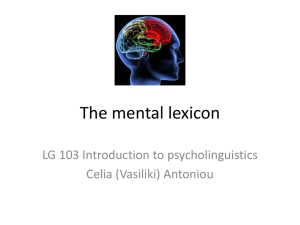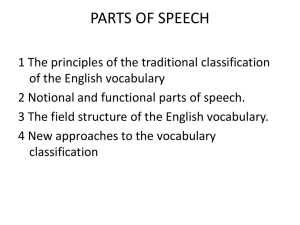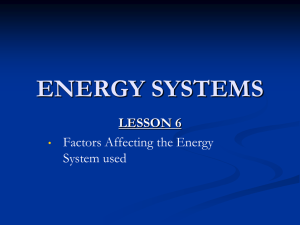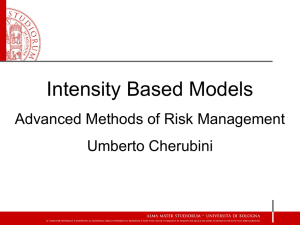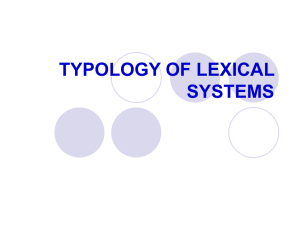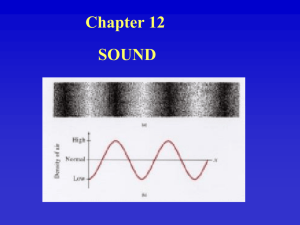Session 3
advertisement
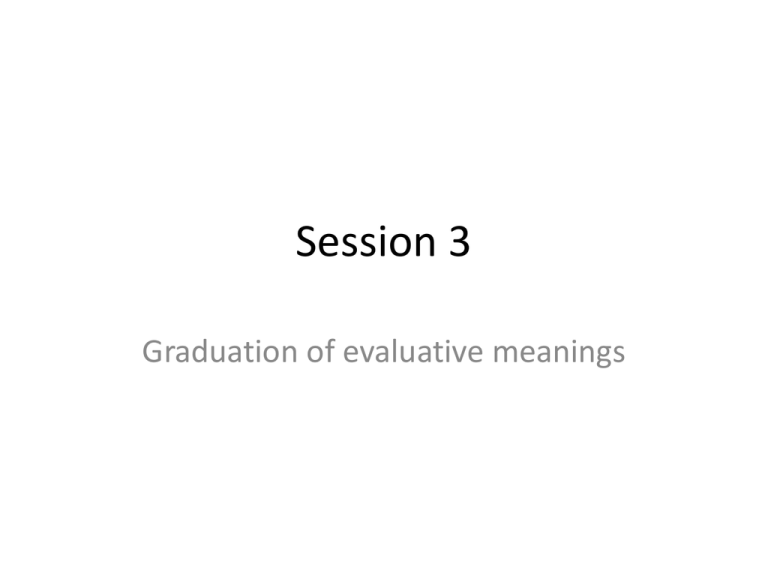
Session 3 Graduation of evaluative meanings revision • We are looking at evaluative language, which gives the subjective point of view or stance of the speakeer/writer. • We have seen how evaluation is an important part of communication. • In texts it can be seen at lexical, grammatical and discourse levels. Graduation of evaluative meaning Upscaling and downscaling of the intensity attitudinal or evaluative meaning gradability • Attitudes and subjective meanings can be expressed with more or less positivity or negativity reflecting the degree of investment in the utterance • There are various ways of doing this • You can grade by intensity or by amount (force) • And you can grade by preciseness of category boundaries or prototypicality (focus) Focus • Prototypicality and the preciseness by which category boundaries are drawn • The degree to swhich some core or exemplary instance of a semantic category are matched • It is possible to up-scale or ‘sharpen’ the specification • E.g. a real father, a true friend Focus • Or you can down-scale or ‘soften’ the specification characterising an instance as having a more marginal membership of the category • E.g they sort of play jazz, she is kind of crazy, Sharpening and softening • Sharpening involves maximal investment by the authorial voice in the value position • Softening of positive values occurs when positive assessement might be problematic for the writer/reader relationship • Softening of negative values indicates a lessening of the speaker/writer’s value position Hedges and boosters • Softening values is often called hedging • Sharpening values is often called boosting See Cambridge grammar of English secrtions 146,423,539 on hedges and boosters in academic texts Focus • You can increase focus by using intensifiers • True, real, genuine • Really, very, genuinely • You can lessen focus by hedging: • Kind of, sort of, a bit, -ish Force • Force = degree of intensity which can be upscaled or down-scaled • Slightly, somewhat, a bit, rather, • Are all downtoners and lessen intensity • Greatly, very, absolutely • Are intensifiers which increase isolating • Some items can realise the up or downscaling on their own to establish the intensity, applying it either to qualities (adjectives and adverbs) or to verbal processes e.g the items a bit, rather, somewhat, quite • A bit miserable, rather/very miserable • Slightly abruptly, quite abruptly, very abruptly • This rather annoyed me maximisers • These increase force to the highest possible intensity: • Utterly, totally, thoroughly, absolutely, completely, perfectly • These are considered to be grammatical intensifiers since they belong to a closed set and have relatively little referential meaning Hyperbole • Hyperbole uses maximisers • I’m always thinking about food. • This gate is in constant use • I never make mistakes lexicalisation • Some intensification can be done by lexical means, either figurative or with attitudinal overtones: • Ice cold • Crystal clear • Deliriously happy • Ridiculously easy Scales of intensity • Sometimes the intensity is not conveyed by a separate lexical item but is infused in the meaning of items in a lexical set • • • • Warm – hot- scalding Contented – happy – joyous Trickle – flow – flood Glance – look - scrutinise repetition • You can also intensify by repeating the same lexical item: • It’s hot, hot, hot • A tiny, tiny,little baby • Or by semantic repetition via synonyms • He’s, dumb, stupid, idiotic, cretinous and totally brainless metaphor • You can also use metaphor to convey intensified meanings: • Prices have sky-rocketed • Mountainous seas Persona • The way a person uses up and down scaling can be part of their personality. • It can be used by authors to construct character • It can be used by journalists to construct their persona with their public • It is an important part of the expression of opinions and of certainty and uncertainty Reading • • • • • • For full details see Martin and WHite The Language of Evaluation 141-153 Cambridge Grammar of English pp223-224 Jane Austen Sense and Sensibility ch. 8 Attribution vs averral another sort of ‘embedding’ of evaluation is possible in texts: where the author attributes evaluations to other voices. It can often be important to determine who is projected by an author as performing an evaluation, in other words, who is projected as the ‘principal’ (Goffman 1981) or the ‘responsible’ or ‘motivator’ (Levinson 1988) of the evaluation, that is, the supposed evaluator. • Evaluation is often a key element of conflict. Often conflicts are a result of opposing value systems, what one group thinks is good, the other thinks is bad – the words they choose to talk about the conflict will often signal their investment through intensification or hedging. • In turn the words used can intensify a conflict remember • the persuader uses evaluative language to convince his or her audience that their own opinions are good and that their proposals are worthy and logical, those of their opponents illogical or dangerous, that they are trustworthy and honest and maybe that others who disagree with them are not. • There are many ways to do this. (lexical, grammatical, covert, overt etc, use of metaphor, graduation) • Look at the text America’s dish detergent wars. The conflict is signaled in the title. Who are the protagonists? What are their relative positions
